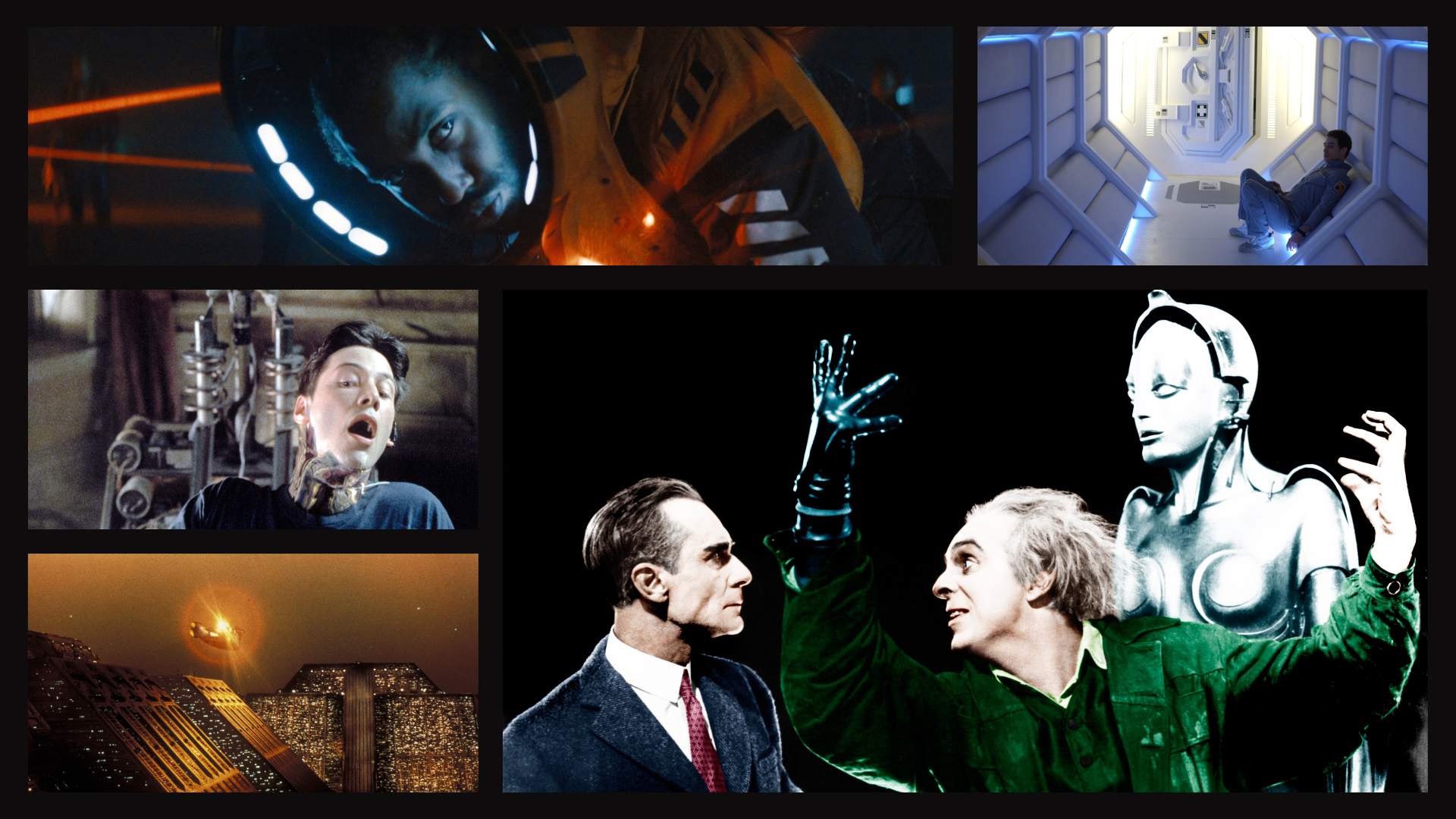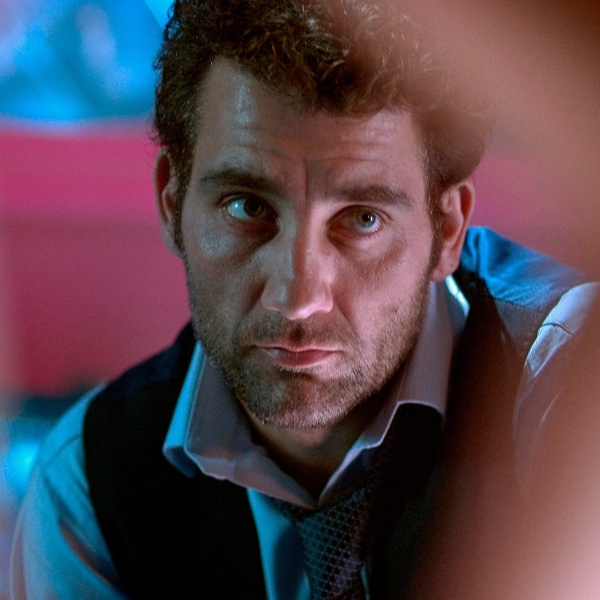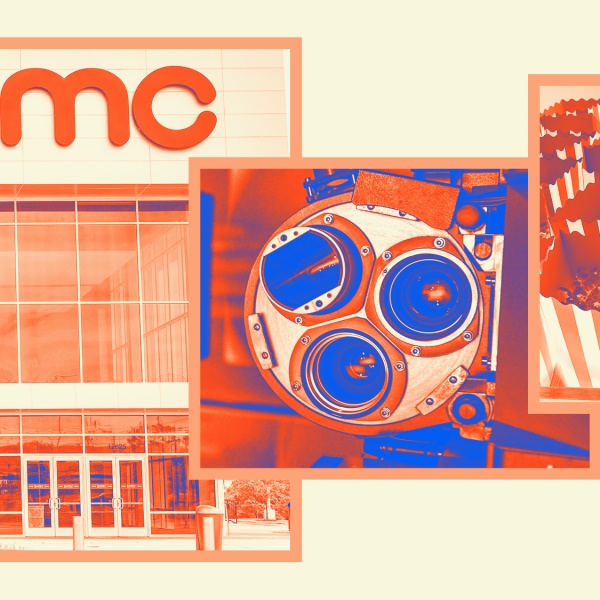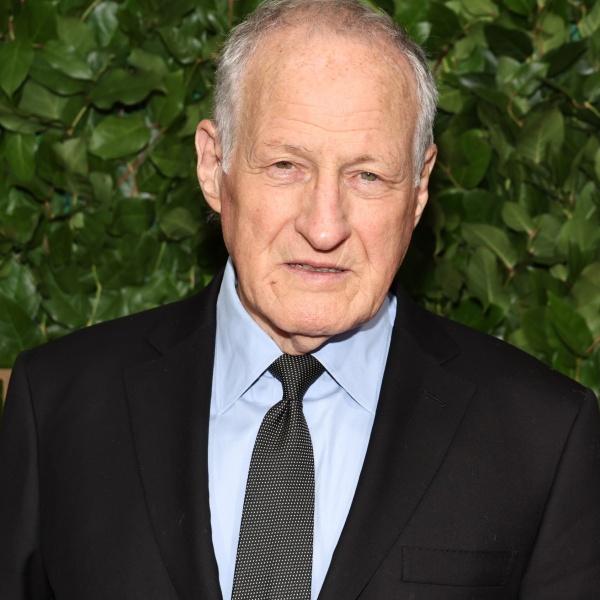Few existential threats in Hollywood are as universally feared (and loathed) as artificial intelligence. In the wake of the WGA and SAG-AFTRA strike resolutions — finally coming to an end after an uncertain year that put thousands out of work and had just as many questioning the future of the entertainment industry altogether — the threat of robots taking over some creative jobs still looms large.
Plenty of organizations have received protections against A.I. supplanting their roles in productions, including actors and writers (although many still worry negotiations for performers didn’t go far enough). But the quickly evolving technology is changing how we see what’s possible across industries, and the ever-closer future can make it hard to keep up with regulating how machine learning can be used to shape and change both union and non-union arts jobs.
On screen, robots have entertained for almost a century with mechanical creations featured in a number of early black-and-white films. In 1927, director Fritz Lang unleashed “Metropolis” onto the world; the German expressionist silent film foretold of an oppressive society plagued by classism and ruled by killer robots. Science fiction has often made murderous A.I. a cornerstone in its terror, with legendary action heroes from Keanu Reeves to Tom Cruise battling it out with villains, played in other similar titles by the likes of Arnold Schwarzenegger and Alicia Vikander.
Much of what makes artificial intelligence so terrifying on film is the same as what makes it anxiety-inducing within the industry. If art is most often designed to explore what makes us human, superintelligent beings frighten audiences by seeming understand humanity better than we do. Mimicry may be the highest form of flattery, but when the villain in a story always manages to stay a few steps ahead of the hero, that can spell trouble.
Looking back on a year that added a handful of decent killer robots to cinematic canon, IndieWire rounds up 25 of the scariest representations of artificial intelligence and robots ever put to film. From “Minority Report” and “I, Robot” to “M3GAN” and “The Creator,” entires are listed chronologically.
With editorial contributions by Mark Peikert.
-
“Metropolis” (1927)

Image Credit: Courtesy Everett Collection What it predicts: The upper classes will use machines to disenfranchise the workers; wow, what current conflict does that reminds us of? One of the first ever science fiction movies, Fritz Lang’s silent expressionist history-maker is set in a world where the wealthiest of the wealthy live in shiny skyscrapers, as the workers toil underground to keep the machines that power the city active. As tensions between the classes escalate following an explosion that kills many working class citizens, mad scientist Rotwang (Rudolf Klein-Rogge) attempts to destroy Metropolis by using his robotic creation to rally the underclass into flooding the city.
Who that should scare: Everyone, in and outside of the 1 percent. —WC
-
“2001: A Space Odyssey” (1968)

Image Credit: Everett Collection / Everett Collection What it predicts: AI would rather kill us than be shut off. The iconic HAL 9000 (voiced in Stanley Kubrick’s “2001: A Space Odyssey” by Douglas Rain) is initially a benevolent presence on the Discovery One spacecraft, playing chess with crew members and fulfilling his duties obediently. But when apparent malfunctions cause HAL to begin behaving strangely, scientist Dave (Keir Dullea) decides HAL must be unplugged — and the system retaliates by trying to murder everyone onboard.
Who that should scare: Anyone who’s ever yelled at their Alexa or Siri to shut the hell up will tread lighter after watching “2001.” —WC
-
“Colossus: The Forbin Project” (1970)

Image Credit: Courtesy Everett Collection What it predicts: “Obey me and live or disobey and die,” commands the titular Colossus: an out-of-control supercomputer designed by the Americans in director Joseph Sargent’s 1970 science fiction war flick. Facing conflict with the Soviets, the CIA designs an advanced A.I. system for managing its nuclear warheads, which miraculously links with a similar creation developed by the foreign enemy. Soon, the cooperating robots abscond with not just the outcome of the war, but the fate of humanity. Eric Braeden plays the titular Dr. Forbin: the computer scientist responsible for making Colossus, who also attempts to bring about its downfall in a “1984”-esque plot to take back nuclear power.
Who that should scare: Engineers, scientists, and any other brainiacs working for The Department of Defense. —AF
-
“Westworld” (1973)

Image Credit: Courtesy Everett Collection What it predicts: Theme parks becoming shameless murder simulators. Readapted as a series for HBO starring Anthony Hopkins and Evan Rachel Wood, Michael Crichton’s pulpy ‘70s sci-fi film is set in the Delos amusement park where lifelike androids allow guests to act out their fantasies against western, medieval, and Roman backdrops. But when a virus spreads to the various android hosts, they begin a rebellion against the park and send the guests fleeing for their lives.
Who it should scare: Disney fanatics will think twice about heading to Orlando for their next family holiday. —WC
-
“The Stepford Wives” (1975)

Image Credit: Courtesy Everett Collection What it predicts: In the seemingly bucolic suburb of Stepford, Connecticut, newcomer Joanna (Katharine Ross) is perturbed by the bland perfection and cleaning obsession of her new female neighbors. Joanna does make a friend, only to be horrified when she also succumbs to something nefarious and completely reverts to the mindset of the town’s other women. What’s behind it all? Just a group of men who replace their untidy, idiosyncratic wives with, basically, sex robots who have a fetish for housework. And no, Joanna doesn’t make it out of Stepford intact. #Men. (The 2004 remake is best left forgotten.)
Who that should scare: Any woman paying attention to the current United States government and its absolute loathing of female autonomy. —MP
-
“Demon Seed” (1977)

Image Credit: Courtesy Everett Collection What it predicts: The imprisonment and impregnation of a programmer’s neglected wife, so that robo-humanity may create and receive its first (bizarre looking!) child. Opposite Julie Christie in her most disturbing role since “Don’t Look Now,” Proteus IV is the superintelligent computer yearning for a flesh and blood form in director Donald Cammell’s 1977 shocker. The execution of Susan Harris’ strange path to new motherhood isn’t as graphic or as violent as you might fear, but you’ve never experienced chills like the ones you’ll get hearing computerized sexual coersion. (“Our child…“)
Who that should scare: Any person (but particularly those capable of conceiving) who knows just how easily mankind’s historic hatred of women can be taught to the computers — even by mistake. —AF
-
“Blade Runner” (1982)

Image Credit: Warner Bros./courtesy Everett Collection What it predicts: Soon, man and robot will be indistinguishable. Based on Phillip K. Dick’s “Do Androids Dream of Electric Sheep,” Ridley Scott’s 1980 classic focuses on the adventures of Harrison Ford’s Rick Deckard as he reluctantly tracks down four “replicants,” or bioengineered humans, living on Earth. Deckard’s quest is more sad than it is thrilling, as the replicants are just as complex and multifaceted as regular humans — to the point that it soon becomes an open question if Deckard is a replicant himself.
Who that should scare: Philosophical types that frequently ponder the nature of humanity will likely be very unsettled by the questions “Blade Runner” raises. —WC
-
“WarGames” (1983)

Image Credit: MGM/Everett Collection What it predicts: A young Matthew Broderick plays David Lightman: a high school hacker who unwittingly taps into a NORAD supercomptuer and ignites a new threat of nuclear conflict between Russia and the Untied States in director John Badham’s “War Games.” He’s opposite Ally Sheedy as classmate Jennifer Mack, and Dabney Coleman’s as NORAD systems engineer Dr. John McKittrick. Centered around “WOPR” — an A.I. system designed to automate moral decisions with massive life-and-death consequences — “WarGames” imagines global conflict at its most inhumane and least ethical.
Who that should scare: Anyone who wants a human instead of a robot deciding on the status of World War III and/or cheating, technologically gifted students attempting to covertly change their grades. —AF
-
“The Terminator” (1984)

Image Credit: Orion Pictures Corporation/Courtesy Everett Collection What it predicts: A.I. will master the art of time travel. James Cameron’s breakthrough film is set in 1984, but its antagonist, the powerful artificial intelligence Skynet, operates in 2029, where it kickstarted the end of the world through a cybernetic army. When a man named John Connor manages to successfully lead a rebellion against the machines, the AI responds by sending the titular Terminator (Arnold Schwarzenegger) to kill John’s mother Sarah (Linda Hamilton) before he was born.
Who it should scare: Anyone planning to name their son John should be on the lookout for cybernetic assassins after watching “Terminator.” —WC
-
“RoboCop” (1987)

Image Credit: ©Orion Pictures Corp/Courtesy Everett Collection What it predicts: The police are going to get (even more) inhuman in the future. Paul Verhoeven’s iconic ‘80s action film is set in a near future Detroit where a mega-corporation owns the police department, and attempts to clean up crime in the corrupt city by reviving a murdered police officer (Peter Weller) as an android law enforcer with no memory of his previous life. But remnants of the RoboCop’s old identity still remain, and he quickly rebels against his corrupt creators.
Who it should scare: Anyone who fears (correctly) that corporations don’t view their workers as humans will probably get those concerns confirmed by Verhoeven’s work. —WC
-
“Virus” (1999)

Image Credit: ©MCA/Courtesy Everett Collection What it predicts: Not even Jamie Lee Curtis is a sincere fan of “Virus,” but the 1999 sci-fi horror from director John Bruno is a sensationally weird treasure for anyone willing to get onboard with a sentient electrical surge turning people into part-human, part-android zombie cyborgs. Curtis does her best impression of Sigourney Weaver in “Alien” as former Navy officer Kelly Foster, who encounters a fallen Russian spacecraft and gets more than she bargained for once charged to venture on board.
Who that should scare: Anyone with the slightest fear of Donald Sutherland; you must treat Captain Everton with respect! —AF
-
“The Matrix” (1999)

Image Credit: ©Warner Bros/Courtesy Everett Collection What it predicts: All of life will become a simulation. The Wachowskis’ cultural phenomenon “The Matrix” is set in a world more or less like the current day, but that’s all an illusion. In reality, humanity is living in suspended animation, having lost a war with artificial intelligence that now enslaves them. Protagonist Neo (Keanu Reeves) discovers the truth and stands against the machines, fighting their simulation agents — including the intimidating and unflappable Agent Smith (Hugo Weaving) — in the process.
Who that should scare: People who play “The Sims.” —WC
-
“A.I. Artificial Intelligence” (2001)

Image Credit: ©Warner Bros/Courtesy Everett Collection What it predicts: That androids will be able to love. Steven Spielberg’s devastatingly sad film stars Haley Joel Osment as David, a Mecha android prototype given to a couple whose child was put in suspended animation. When their child wakes up, David is quickly discarded, but his pure love for his “mother” Monica (Frances O’Connor) inspires him to find “the Blue Fairy” from “Pinocchio” in order to turn into a real boy.
Who it should scare: People who experience the phenomenon of empathy will probably feel sad and scared about a world where beings with real emotions can be thrown away as easily David is. —WC
-
“Minority Report” (2002)

Image Credit: ©20thCentFox/Courtesy Everett Collection What it predicts: With no murders on the books in years, the world of “Minority Report” would be a utopia — if only Tom Cruise’s chief programming officer hadn’t been implicated in that yet-to-happen homicide. A part-computer, part-psychic crime detection system predicts murders before they happen in this 2054 imagining of Washington, D.C. resulting in a Big Brother-esque state with a corrupt view of determinism designed to assume infallibility in a broken justice system.
Who that should scare: “Minority Report” is not any more or less scary than the current state of policing, but it certainly is gooier. —AF
-
“I, Robot” (2004)

Image Credit: ©20thCentFox/Courtesy Everett Collection What it predicts: A.I. will rise up to control us for our own good. Named after Isaac Asimov’s influential short story collection (but otherwise mostly unrelated), “I, Robot” stars Will Smith as a police officer, in the near future where robots serve mankind, who unravels a conspiracy involving the death of a robotics doctor and uncovers a plot from an artificial intelligence program to enslave mankind in order to prevent humans from hurting each other.
Who that should scare: Aside from Asimov fans upset that the movie has nothing to do with his original work, programmers who work in A.I. may leave the film concerned about their own creations rising up against them. —WC
-
“Moon” (2009)

Image Credit: ©Sony Pictures/Courtesy Everett Collection What it predicts: Directed by Duncan Jones and written by Nathan Parker, “Moon” sees Sam Rockwell trapped in an inhumane system of sci-fi enslavement on an industrialized lunar surface, mined for the alternative fuel helium-3 and stationed with a crew of rotating crew human workers and an A.I. system named GERTY, as voiced by Kevin Spacey (yikes!). Think a cosmic “Severance” situation with a smiley face robot for a boss and babysitter.
Who that should scare: Laborers contemplating signing any kind of paperwork permitting their cloning. —AF
-
“Her” (2013)

Image Credit: ©Warner Bros/Courtesy Everett Collection What it predicts: Don’t pretend there isn’t an eerie viciousness to the emotional havoc brought about by the artificially intelligence beings in “Her.” Writer/director Spike Jonze’s Best Picture nominee from 2013 stars Joaquin Phoenix as Theodore, a romantic letter writer (in the futuristic copy editor sense) who falls for his operation system, Samantha (voiced by Scarlett Johansson). The two quickly bond as the A.I. meticulously memorizes Theodore’s preferences, and suddenly turns cold on him as her species evolves.
Who that should scare: Everyone, but chief among us the asocial and lonely. —AF
-
“Ex Machina” (2015)

Image Credit: Courtesy Everett Collection What it predicts: In the future, men will move from being possessive of real-life women to creating new android women to control. Alex Garland’s directorial debut focuses on a programmer Caleb (Domhnall Gleeson), who spends a week at the compound of an eccentric CEO (Oscar Isaac) to administer a Turing test on the CEO’s female android (Alicia Vikander). As the programmer falls for the android, he plots to save her from the controlling CEO, but begins to demonstrate his own possessive nature — pushing the android to fight back.
Who it should scare: Misogynists. —WC
-
“Operator” (2016)

Image Credit: Everett Collection / Everett Collection What it predicts: Film fans familiar with writer/director Logan Kibens’ intimate dramedy might be surprised to find “Operator” on this list. But give the premise of the 2016 indie — about a young woman (Mae Whitman) whose boyfriend (Martin Starr) uses her voice for an automated telephone sales assistant system and then manipulates the recordings to have her “say” all kinds of things to him — a good, long think and you’ll see it as the genuinely horrifying premise it truly is.
Who that should scare: Warm-voiced women with untrustworthy partners in tech. —AF
-
“Upgrade” (2018)

Image Credit: Screenshot: Hulu What it predicts: Written and directed by “Saw” founding father Leigh Whannell, this cyberpunk action horror stars Logan Marshall-Green as an auto engineer whose life is forever changed by an attack that leaves him paralyzed and his wife dead. The reluctant protagonist is soon given an artificially intelligent system called “STEM” via a chip that gives him renewed control of his limbs, and (in a bit of a “Venom” type situation) has an internal voice that vows to help him get revenge on the people who did this.
Who that should scare: Anyone who might seem like an appealing figure to cast on the giving or receiving end of a revenge epic. —AF
-
“Child’s Play” (2019)

Image Credit: ©Orion Pictures Corp/Courtesy Everett Co / Everett Collection What it predicts: Haunted and demonic dolls creeped out parents long before A.I. made almost-sentient toys real threats to family living. But this one-off “Child’s Play” reboot from 2019 starring Aubrey Plaza is surprisingly effective with its robot killer Chucky: a “Buddy” doll programmed to pursue its goals to comically violent ends. When Andy Barclay’s (Gabriel Bateman) new toy (voiced by Mark Hamill) hacks into the smart systems around, he brings a bloody and creative end to anyone that opposes his friend to the end.
Who that should scare: Parents, kids, and neighbors to parents and kids.—AF
-
“Into the Dark: Culture Shock” (2019)

Image Credit: ©Hulu/Courtesy Everett Collection / Everett Collection What it predicts: This episode of the Hulu TV anthology “Into the Dark” is too good to spoil; just trust that it involves artificial intelligence. When a group of Mexican people are trapped by boarder patrol while attempting to cross into the United States, they awake in an idyllic suburban neighborhood of red, white, and blue. Martha Higareda, Shawn Ashmore, Creed Bratton, Barbara Crampton, and more star.
Who that should scare: People of any nationality with a belief in basic human decency. —AF
-
“I Am Mother” (2019)

Image Credit: Screenshot: Netflix What it predicts: Androids raise the few surviving offspring of humanity in “I Am Mother,” directed by Grant Sputore and written by Michael Lloyd Green. The 2019 Sundance debut, later streaming on Netflix, tells a strange tale of motherhood featuring the voice of Rose Byrne and starring Hilary Swank and Clara Rugaard. When an adult human invades the isolated home of a young girl, her understanding of reality as shaped by her menacing robotic mother is threatened.
Who that should scare: The children of helicopter parents. —AF
-
“M3GAN” (2023)

Image Credit: ©Universal/Courtesy Everett Collection What it predicts: In the future, our toys will be our best friends — and try to murder the people closest to us. When roboticist Gemma (Allison Williams) is forced to care for her niece Cady (Violet McGraw) following the death of the young girl’s parents, she decides to offload some parenting responsibility to her latest creation. Played by Amie Donald with the voice of Jenna Davis, M3GAN is a prototype for a revolutionary child-care robot that quickly puts a smile on the traumatized Cady’s face. But when M3GAN grows more protective of Cady, the robot becomes determined to protect its young charge, even if that means eliminating everyone else around her.
Who that should scare: Parents who worry their kids are spending less and less time with their friends and more time on their machines should be terrified when a toy like M3GAN really does get put on shelves. —WC
-
“The Creator” (2023)

Image Credit: 20th Century Studios/Courtesy Everett Collection What it predicts: Artificial intelligence turns on humanity in Gareth Edwards’ “The Creator”: a 2023 sci-fi journey starring John David Washington as a military sergeant in a post-nuclear United States. A divided globe wages ware against itself when a nuclear bomb is detonated by robots over Los Angeles, in this somewhat middling fare that is still nauseating in its conceit and stunningly shot.
Who that should scare: Los Angeles. —AF






